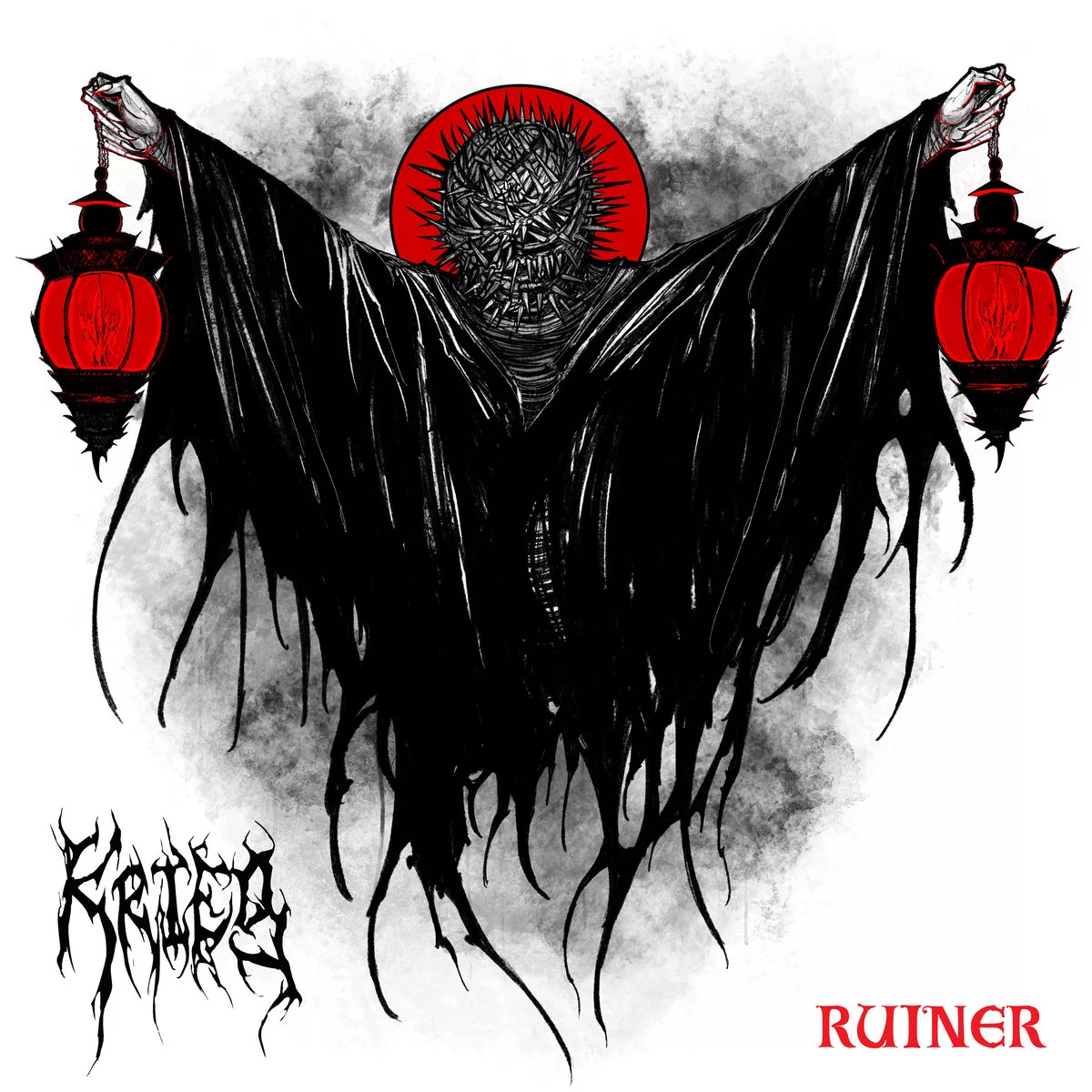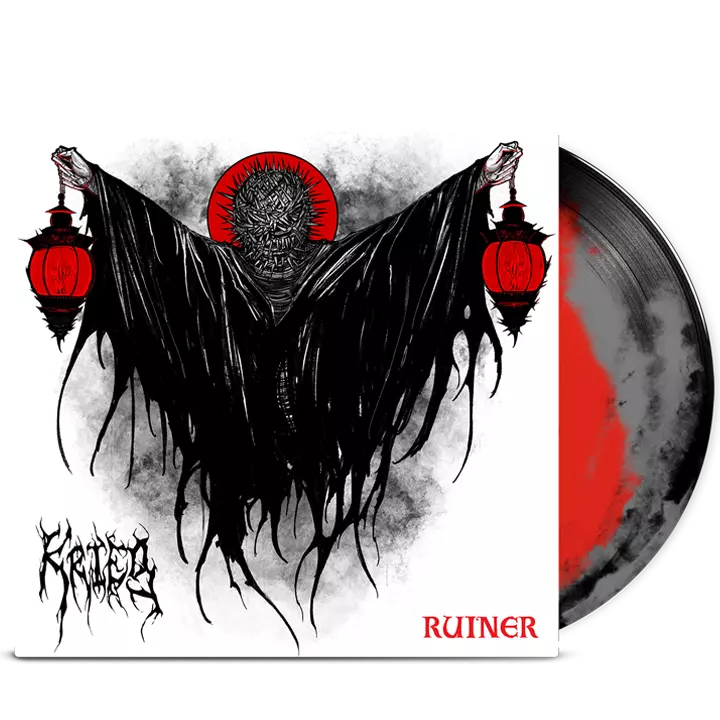Review: Krieg – Ruiner

Krieg’s return with “Ruiner” is both an affirmation and a revelation, the kind of record that could only come from decades of abrasion, collapse, and survival within American black metal. Since the mid-90s, Krieg has become a singular entity – too raw to be ignored, too restless to ever calcify into comfort. “Ruiner” is not a reinvention, but it is a summation of a long history of contempt, disillusion, and persistence, shaped into a statement as jagged as it is cathartic.
The album opens with “Bulwarks of Ruin,” a song that immediately sets the tone: tense, bristling riffs over a suffocating drum assault, with vocals that sound like a wound being reopened. This is not the icy minimalism of second-wave mimicry, but rather a more American sensibility: aggressive, grimy, punk-inflected. The production is raw without descending into murk. Every instrument bleeds into the others, but in a way that feels intentional, as though the chaos itself were the point.
There are flashes of melody buried in the noise. “No Gardens Grow Here” and “Manifested Ritual Horror” hint at atmospheric black metal, but only briefly, as if to remind the listener that beauty can exist before dragging it back into ruin. What makes “Ruiner” compelling is this tension: the album never indulges in prettiness, but it recognizes it enough to weaponize it. The result is both exhausting and rewarding, a pendulum swing between corrosive rage and bleak reflection.
Krieg’s lyrical focus remains misanthropic, but not in the cartoonish sense of many black metal peers. Here, despair is personal, from personal experience, sometimes bordering on confessional. The words are buried in the mix, forcing the listener to strain, to meet the album on its terms. It feels less like being told a story and more like eavesdropping on a breakdown. That intimacy is unsettling, but it is also what elevates the album beyond genre tropes.
Where “Ruiner” falters is in its middle stretch, where songs blur together. The intensity rarely lets up, which can make the record feel longer than its runtime. A song like “Fragments of Nothing” carries weight, but following two equally relentless assaults, its impact is dulled. By contrast, when the band allows space to creep in, like in the eerie closer “The Lantern and the Key”, the dynamic shift is startling, and it suggests that Krieg could push even further into that territory.
Still, the flaws do little to undermine the force of “Ruiner”. It is a record that thrives on abrasion and demands attention, not in spite of its imperfections but through them. Krieg has never been about perfection. They are about the collapse that perfection hides, about revealing the bones beneath the skin. “Ruiner” is a distillation of that ethos, a reminder that black metal can still be dangerous when it refuses polish and embraces fracture.
